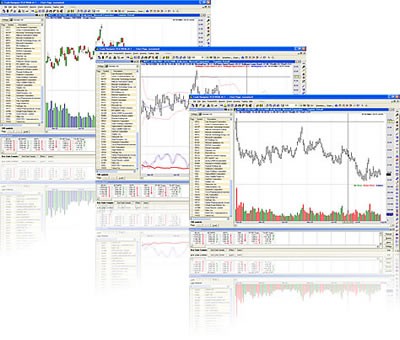Zaner How to Open a Trading Account Commodities Futures Forex and Cash Metals Brokers
Post on: 7 Май, 2015 No Comment

What’s Involved When Opening a Futures or (retail) Forex Trading Account?
At its simplest, opening a trading account to trade futures, options on futures or forex is similar to applying for a credit card or bank loan. The brokerage firm is required by law to obtain very specific information regarding net worth, income and proof of identity. If the account is opened as a trust, corporation or similar legal entity, then several additional documents may be required.
www.zaner.com/3.0/account/account.asp
After submitting this simple application online, you will be contacted by your Zaner Group broker, who will assist you with the next phase in the application process.
Note: Trading in futures, options and the retail (off-exchange) forex market is speculative in nature and involves substantial risk of loss. Trading is not suitable for all investors.
Getting Started
www.zaner.com/3.0/account/account.asp
When you speak with your Zaner Group broker, he or she will guide you through the Step 2 process of completing the appropriate futures commission merchant (FCM) or retail foreign exchange dealer (RFED) application and risk disclosure documents. Often this can easily be completed online.
Depending on the type of account being opened, some paperwork may have to be completed on paper and faxed back to our office. We never want you to guess or make assumptions about the documentation and that’s why your broker, assisted by our New Accounts Department, we will be ready to assist you and answer your question.
Why Do We Need So Much Information?
Regulation for commodity futures and retail (off-exchange) forex is under the jurisdiction of the Commodity Futures Trading Commission, a Congressionally-established federal regulatory agency. Brokerage firms that conduct business with the public are also regulated by the National Futures Association (NFA), a self-regulatory organization.
The regulatory requirements for opening a futures or forex trading account are governed by the CFTC, NFA and Treasury Department. Brokerage firms are therefore required to obtain certain information from each client. This includes (though is not limited to): Estimated annual income and net worth The customer’s age or date of birth Information about previous trading experience The customer’s legal name, address and principal occupation or business Whether the account is for hedging or speculative purposes The customer’s employment status The customer’s marital status and number of dependents

Tax Forms — We also require you to complete and sign a W-9 or Form W-8 BEN (in the case of a foreign person).
Proof of Identification — Acceptable forms of ID for U.S. individuals are passports, drivers license, commercial drivers license and state ID. Non-US customers must provide a copy of their passport. If the proof-of-identification does not contain an address or if the address on the proof-of-identification does not match the address on the account application, then additional proof of residency will be required, such as a recent utility bill.
Requirements for Legal Entities
The requirements for non-individual customers is beyond the scope of this basic overview. So be sure to let your broker know if you intend to open the account as a: Corporation Partnership Limited Liability Company (LLC) Pension or Profit Sharing Plan Bank or Thrift Individual Retirement Account (IRA)
Trading Futures and Forex in Your Retirement Account — Federal regulations permit a self-directed IRA to invest retirement funds into futures and forex accounts. You must demonstrate that you hold a minimum of $10,000 in retirement assets. There is quite a bit of additional paperwork involved, and you need an IRA custodian that supports futures and/or forex trading. We can provide names of IRA custodians that support futures and forex.
Trading in futures, options and the retail (off-exchange) forex market is speculative in nature and involves substantial risk of loss. You should carefully consider whether trading is appropriate for you in light of your circumstances, knowledge and finances. Trading is not suitable for all investors.














